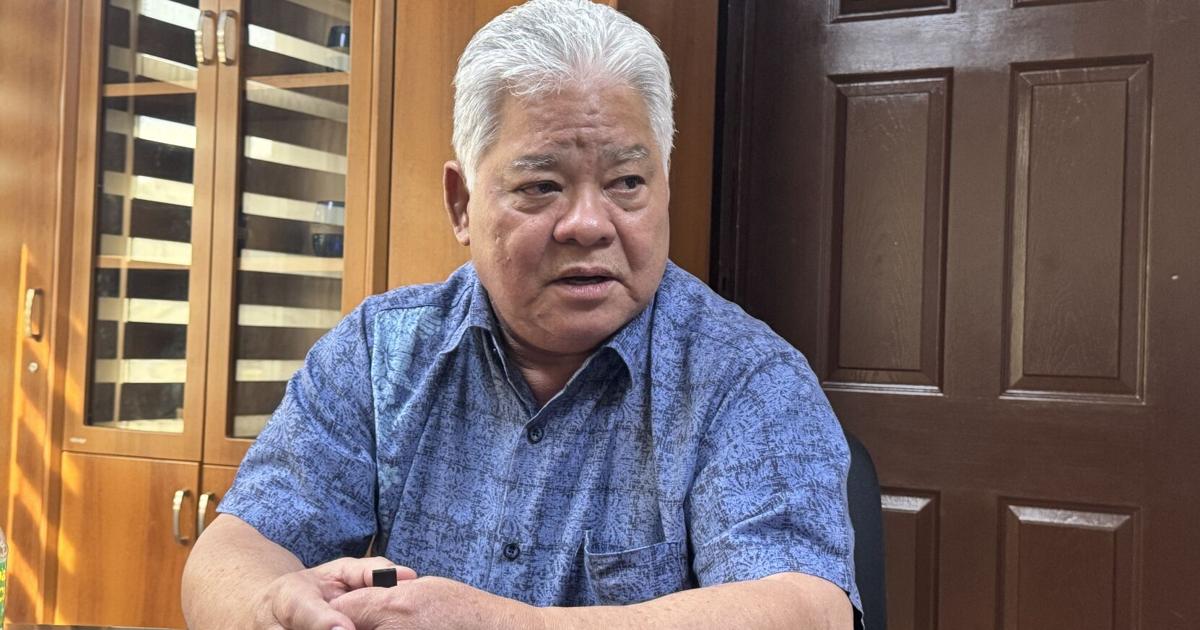Palacios declared Sept 23-27 National Clean Energy Week
October 6, 2024

The CNMI is making big strides toward a cleaner, more sustainable energy future. Celebrating these efforts, Gov. Arnold I. Palacios and Lt. Gov. David M. Apatang declared Sept 23-27, 2024, as National Clean Energy Week. They are calling residents, businesses, and government offices to recognize the progress the islands have made in clean energy and sustainability.
One of the biggest goals for the CNMI is to reach 100% renewable energy by 2045. The CNMI co-signed the Blue Planet Agreement, joining other islands in fighting climate change. This is also part of the CNMI’s 2024 Climate Action Plan, which focuses on cutting down greenhouse gas emissions from electricity generation and transportation, two of the biggest sources of pollution in the islands.
Solar energy is the most abundant renewable energy source in the CNMI, and the government has been making major moves to use it. The Commonwealth Utilities Corp. is currently building a 20-megawatt solar farm on Saipan, which will be the first large-scale solar farm in the CNMI. This project will reduce the islands’ reliance on fossil fuels and help generate clean electricity.
Public institutions are also going solar. The Commonwealth Healthcare Corp. started installing solar panels at hospitals and health centers on Saipan, Tinian, and Rota in 2018, and the Public School System followed by installing solar panels at 19 schools and three Head Start centers in 2021. These efforts are helping schools and hospitals switch to cleaner, on-site renewable energy.
The private sector is also doing its part. Some businesses are investing in solar energy, including the largest privately funded solar-covered parking lot at the Marianas Business Plaza. The CNMI’s first eclectic vehicle charging station was installed by Pacifica Insurance Underwriters, Inc., and more businesses are using solar panels to power their operations.
Meanwhile, more residents are adding solar technologies to their homes, such as solar water heaters, air conditioning, and full-scale solar power systems. This shows that both businesses and individuals are committed to moving to a cleaner future.
Transportation is also going green in the CNMI. The government is working on electrifying public transit buses, which will help reduce emissions and improve air quality. In 2024, a local nonprofit called 500 Sails launched a fossil fuel-free ocean travel initiative within the Saipan lagoon. This program offers visitors and residents an eco-friendly way to explore the waters while supporting sustainable tourism The government is also encouraging people to save energy. Thanks to a $3.1-million grant from the U.S. Environmental Protection Agency, the Saipan Mayor’s Office is helping replace old, inefficient lights with new LED lights across the island. This project is expected to cut carbon emissions by 12,000 metric tons per year. The Department of Public Works is also promoting the use of Energy Star-certified products, which can help lower energy use and save money.
The CNMI is also looking at how renewable energy can be used in waste management. In 2022 and 2024, the Office of Planning and Development conducted a study to see how solar power with battery storage could be used at the Marpi landfill on Saipan. They are now trying to get funding to implement the project and have plans to expand to waste management facilities on Tinian and Rota.
With these efforts, the CNMI is taking big steps toward a sustainable and clean energy future. Island residents, businesses, and government offices are being encouraged to keep supporting the transition to renewable energy. These changes will help the islands reduce pollution, create jobs, and ensure a healthier environment for future generations.
Search
RECENT PRESS RELEASES
Related Post




